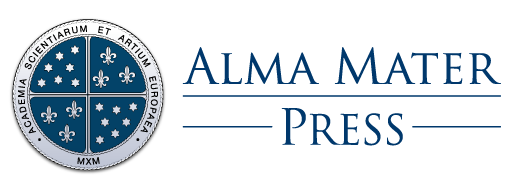Ideational Preconditions to the Success of the October Revolution
DOI:
https://doi.org/10.33700/1580-7118.20.1.51-68(2018)Keywords:
October Revolution, ideational history, Russian Orthodox Church, Georges Florovsky, Nikolai BerdyaevAbstract
This article aims to analyse some ideational preconditions, traced back to the preceding periods of Russian history, which enabled the success of the October Revolution in 1917. Firstly, the article deals with the views of Georges Florovsky (1893–1979), Russian theologian, philosopher and historian. Florovsky argues that Russian thought had been ‘in captivity’ ever since the 16th century, a captivity imposed by Western influences. Among the foreign influences, it is the German idealist philosophy that is perceived by Florovsky as the most detrimental, for it paved the way for various utopian projects, including the Bolshevik revolution. Secondly, the article examines the notions of the Russian philosopher Nikolai Berdyaev (1874–1948). From Berdyaev’s point of view, the victory of Bolshevism resulted from Russia’s lack of a free secular intellectual- philosophical tradition, which was thwarted by the authoritarian state. As a consequence, Bolshevik ideology interpreted the original Marxism in conceptually closed terms. The present paper argues that the views of Florovsky and Berdyaev are acceptable yet partial. This is because they are concerned with generally interpreting the formation of the intellectual environment which favoured the victory of Bolshevism on Russian soil, without considering the complexity of Russian politics and society at the turn of the 19th century.
Downloads
References
ANDREEV, A. L. (1990): “Posleslovie”, v: Berdjaev, N. A., Istoki i smysl’ russkogo kommunizma, Moskva, Nauka, 161–200.
ANNANICH, B. (2006): “The Russian Economy and Banking System”, v: Lieven, D. (ur.), The Cambridge History of Russia. Zv 2: Imperial Russia, 1689–1917, Cambridge, Cambridge University Press, 394–425.
BERDJAEV, N. A. (1990): Istoki i smysl’ russkogo kommunizma, Moskva, Nauka.
BLANE, A. (1993): “A Sketch of the Life of Georges Florovsky”, v: Blane, A. (ur.), Georges Florovsky: Russian Intellectual and Orthodox Churchman, Crestwood, St. Vladimir’s Seminary Press, 11–217.
FLOROVSKIJ, G. (1983): Puti russkogo bogoslovija, Pariz, YMCAPress, tretja izdaja.
FLOROVSKY, G. (1972): “The Church: Her Nature and Task”, v: Collected Works of Georges Florovsky. Zv. 1: Bible, Church, Tradition: An Eastern Orthodox View (prev. Nichols, R. L.), Belmont, Norland Publishing Company, 57–72.
GAVRILYUK, P. L. (2013): Georges Florovsky and the Russian Religious Renaissance, Oxford, Oxford University Press.
GRDINA, I. (2011): “Richard E. Pipes in njegovo razumevanje ruske zgodovine”, v: Pipes, R., Kratka zgodovina ruske revolucije (prev. Knop, S.), Ljubljana, Študentska založba, 496–522.
LOHR, E. (2006): “War and Revolution”, v: Lieven, D. (ur.), The Cambridge History of Russia. Zv 2: Imperial Russia, 1689–1917, Cambridge, Cambridge University Press, 655–669.
LOWRIE, D. A. (1960): Rebellious Prophet: the Life of Nicolai Berdyaev, New York, Harper & Brothers.
MALMENVALL, S. (2017a): “Georges Florovsky and Russian Intellectual History: Rejection of Orthodoxy as a Way towards the Bolshevik Revolution?”, v: Žalec, B. in Petkovšek, R. (ur.), Truth and Compassion: Lessons from the Past and Premonitions of the Future, Zürich, Lit Verlag, 111–117.
MALMENVALL, S. (2017b): “V iskanju idejnih predpogojev za uspeh boljševiške oktobrske revolucije”, Bogoslovni vestnik, 77, št. 3/4, 671– 686.
PIPES, R. (2011): Kratka zgodovina ruske revolucije (prev. Knop, S.), Ljubljana, Študentska založba.
PIPES, R. (1990): The Russian Revolution, New York, Knopf Publishing Group.
PIPES, R. (2003): Vixi: Memoirs of a Non-Belonger, Yale, Yale University Press.
RAEFF, M. (1993): “Enticements nad Rifts: Georges Florovsky as Russian Religious Historian”, v: Blane, A. (ur.), Georges Florovsky: Russian Intellectual and Orthodox Churchman, Crestwood, St. Vladimir’s Seminary Press, 219–286.
SHAKIBI, Z. P. (2006): “Central Government”, v: Lieven, D. (ur.), The Cambridge History of Russia. Zv. 2: Imperial Russia, 1689–1917, Cambridge, Cambridge University Press, 429–448.
STEINBERG, M. D. (2006): “Russia’s fin de siècle, 1900–1914”, v: Suny, R. G. (ur.), The Cambridge History of Russia. Zv 3: The Twentieth Century, Cambridge, Cambridge University Press, 67–93.
VASILENKO, L. I. (2004): Vvedenie v russkuju religioznuju filosofiju: Kurs lekcij, Moskva, Pravoslavnyj Svjato-Tihonovskij Bogoslovskij institut.
WILLIAMS, G. H. (1993): “The Neo-Patristic Synthesis of Georges Florovsky”, v: Blane, A. (ur.), Georges Florovsky: Russian Intellectual and Orthodox Churchman, Crestwood, St. Vladimir’s Seminary Press, 287–340.

